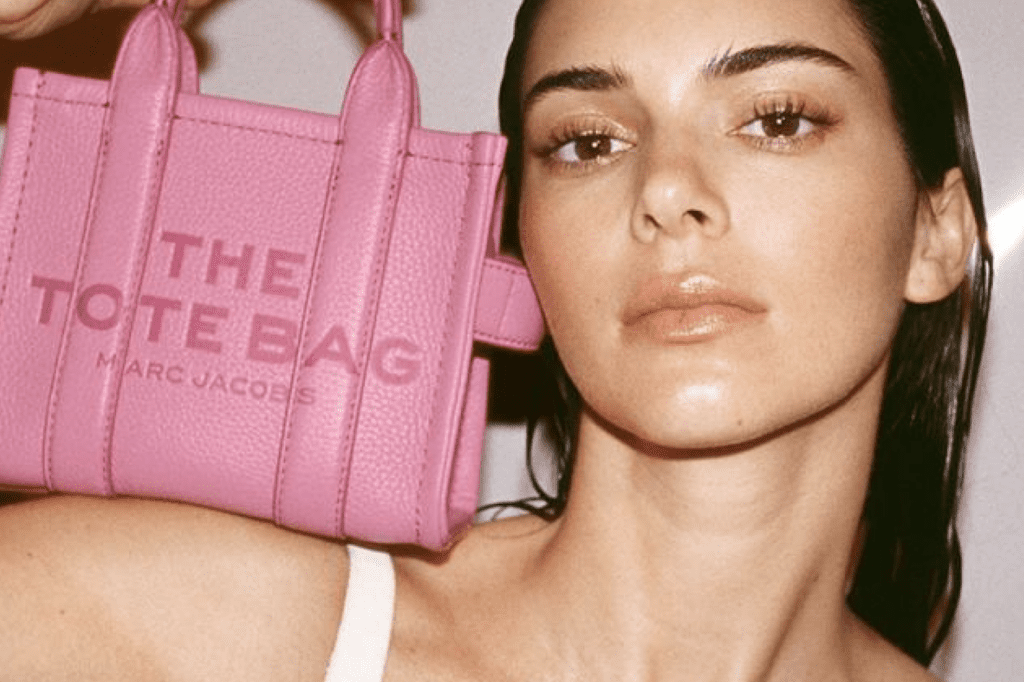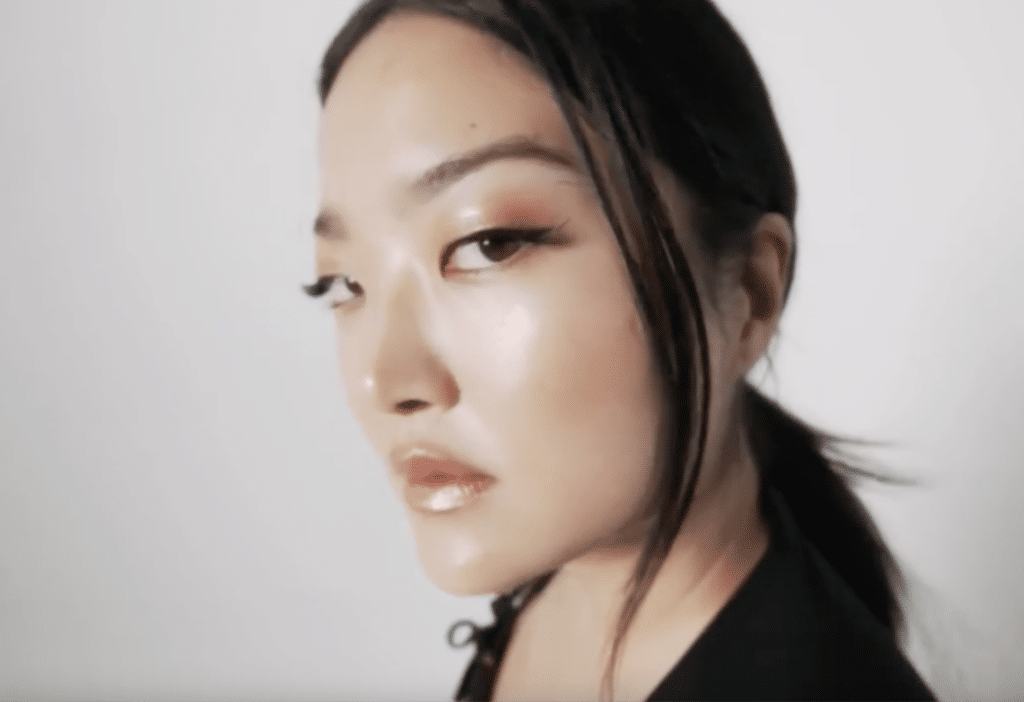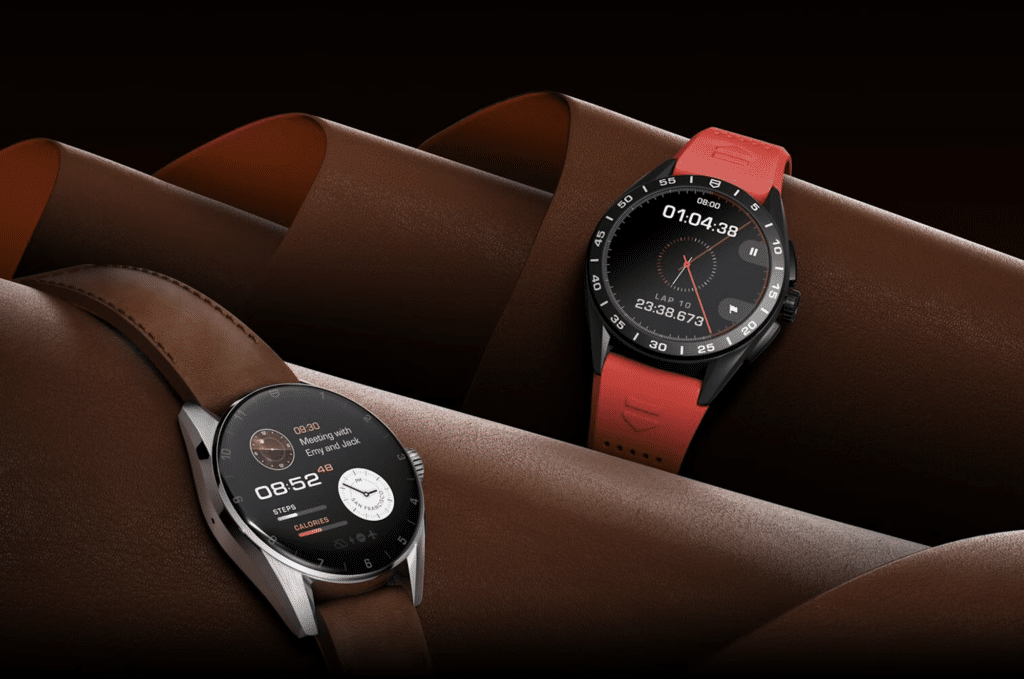In an interesting turn of events, a Chinese seller of handbags – including knockoff Marc Jacobs totes – has lodged a declaratory judgment lawsuit against the LVMH-owned fashion brand. In the complaint that it filed with the U.S. District Court for the Southern District of New York on Friday, Guangzhou Xiao Ling Wan Trading Co. (“Guangzhou Xiao”) – which owns and operates an Amazon store called LINGWANUS, where it sells various styles of handbags – claims that Marc Jacobs made “fraudulent assertions of trademark infringement, which ultimately caused Amazon to remove [its] listings” for three handbag variations, thereby, damaging its business relationship with retail giant.
According to the newly-filed lawsuit, Marc Jacobs “intentionally and knowingly made fraudulent assertions of trademark infringement” with the aim of getting Amazon to remove Guangzhou Xiao’s listings of bags that mirror its THE TOTE BAG bags. More specifically, Guangzhou Xia claims that in making its October 2023 complaint with Amazon about the bags at issue, Marc Jacobs relies on two intent-to-use trademark applications for THE TOTE BAG word mark and a figurative mark for use on “Wallets and Card cases.” Guangzhou Xiao asserts that while Marc Jacobs “knows that if it applied for THE TOTE BAG for tote bags, it would get a strong genericness refusal from the U.S. Patent and Trademark Office,” and yet, it “still decided to use these two pending-review marks to file [a] complaint against [Guangzhou Xiao] on Amazon, causing Amazon to delist [its] products, [which are] tote bags.”
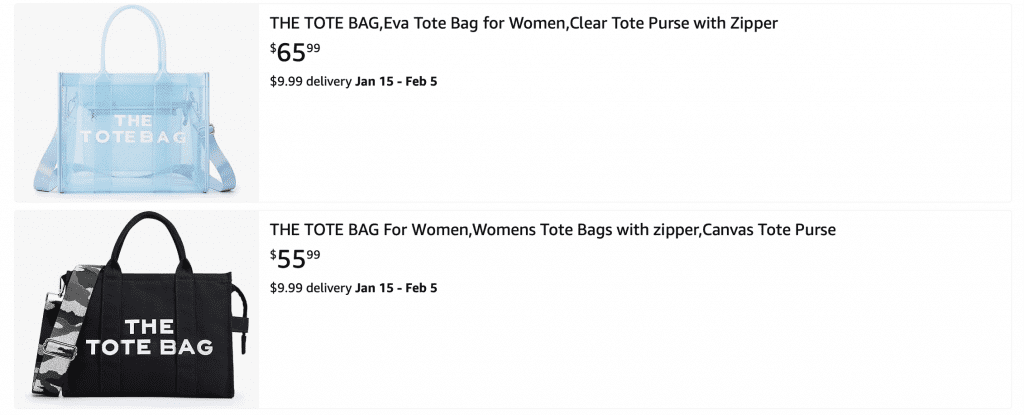
In doing so, Guangzhou Xiao alleges that Marc Jacobs “is taking advantage of [the Amazon] system” – which it says is “heavily weighted in favor of trademark owners” – so that it “can hurt [Guangzhou Xiao’s] business.” Specifically, Guangzhou Xiao states that Amazon’s takedown system “offers trademark owners like [Marc Jacobs] (whether he gets his trademark legally or illegally) a substantial benefit that entities typically will not get from a court, because an Amazon de-listing effectively amounts to an injunction removing the accused product(s) from the marketplace.”
Since three different handbag styles were all taken down by Amazon as a result of the Marc Jacobs complaint, Guangzhou Xiao maintains that Jacobs’ “malicious complaint has caused [it] irreparable harm.” And because its ongoing business relationship with Amazon includes the current sale of similar handbags that Marc Jacobs “claims are infringing,” Guangzhou Xiao is seeking a declaration from the court that it is “not infringing, has not infringed, and is not liable for infringing [Jacobs’] pending-review [THE TOTE BAG] marks.”
In furtherance of its non-infringement argument, Guangzhou Xiao argues that it has “consistently used the brand name ‘Fancy Forest’ on its Amazon page … making it clear to every customer that they are purchasing from ‘Fancy Forest.’” (This does seem terribly persuasive to me not only because the bags are almost exact replicas of Jacobs’ bags – and arguably indicators of source Marc Jacobs’ brand – but because the bags are not uniformly advertised as coming from the “Fancy Forest” brand. Some are listed as “Brand: Generic,” for instance.)
Additionally, Guangzhou Xiao accuses Jacobs of tortious interference with its contractual relations with Amazon and tortious interference with prospective economic advantage as a result of its “fraudulent assertions of trademark infringement.”
Against that background, Guangzhou Xiao is seeking monetary damages, as well as preliminary and permanent injunctive relief, including requiring Marc Jacobs to notify the Amazon.com of its consent to the withdraw its trademark infringement complaint about the Guangzhou Xiao products. Guangzhou Xiao is also looking for the court to “temporarily, preliminarily, and permanently” bar Jacobs from making “any future complaint” against Guangzhou Xiao for use the marks at issue (namely, “unregistered marks 98/066,565 and 98/066,640”) on “any online marketplace.”
A representative for Marc Jacobs did not respond to a request for comment about the lawsuit.
Building – and Protecting – an “it” Bag
What might be even more interesting than the allegations in the complaint is the “it” bag that is THE TOTE BAG. After all, the new lawsuit comes as Jacobs appears to be looking to stomp out an array of products that co-opt the design of its TOTE BAG. The influx of copycat versions of the potentially-unexpected-it-bag on Amazon’s e-commerce marketplace (and beyond) is, of course, a testament to the sheer demand for the real thing, which Marc Jacobs stocks on Amazon.
But more than that, the complaint comes as Jacobs seems to be angling to build up its rights in – and registrations for – various “THE TOTE BAG” marks (both in word mark and figurative mark forms) across an array of goods/services. After all, the company filed a dozen applications for registration with the U.S. Patent and Trademark Office (“USPTO”) in June for THE TOTE BAG word mark and figurative mark (the latter of which consists of “a miscellaneous [handbag] design with the words ‘THE TOTE BAG’ in a stylized font centered within”) for use things like jewelry; clothing, footwear, and headwear; and retail store services “featuring eyewear, jewelry, clothing, headwear, footwear, wallets and card cases;” among other things.
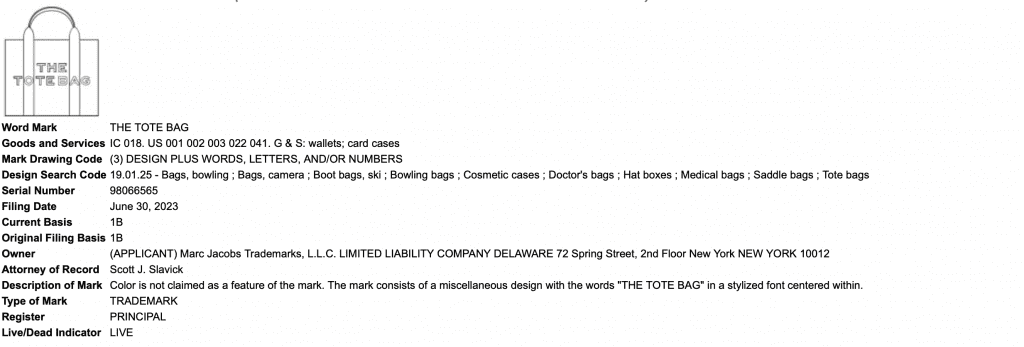
Unsurprisingly, “handbags” are noticeably absent from the list of goods/services on those applications for registration (even the retail store services ones) – almost certainly a reflection of Jacobs’ counsel’s desire to sidestep refusals from the USPTO on descriptiveness grounds.
Given the prickly facts at play and the very-real-risk of pushback on descriptiveness grounds, it would inevitably be an uphill battle for even a well-tooled brand like Jacobs to amass rights in and registrations for THE TOTE BAG mark for use on bags, and any rights (and registrations) would be narrow. With that in mind, Jacobs appears to be doing the next best thing and seeking to amass as robust of rights in the bag’s design – THE TOTE BAG wording, included – as it can. This includes rights in related goods/services – like wallets and card holders (which, like handbags, fall in Class 18 – along with other leather goods) – and rights in various aspects of the mark: The THE TOTE BAG word mark, the figurative mark of the wording along with the configuration of the bag, and the design of the bag, on its own. (In addition to the THE TOTE BAG applications, Jacobs filed a number of applications for registration for the bag design for use across the same array of goods/services in June.)
And in the meantime, the brand is busy building up rights in those marks simply by using them. It is worth noting just how well-known the bag design – complete with THE TOTE BAG text – has become among consumers since it was first introduced in 2019. Case in point: According to Google searches, THE TOTE BAG is the “most popular tote bag” of 2023, thanks (at least in part) to its “viral” status on TikTok.
The case is Guangzhou Xiao Ling Wan Trading Co. Ltd. v. Marc Jacobs Trademarks LLC, 1:23-cv-09975 (SDNY).







